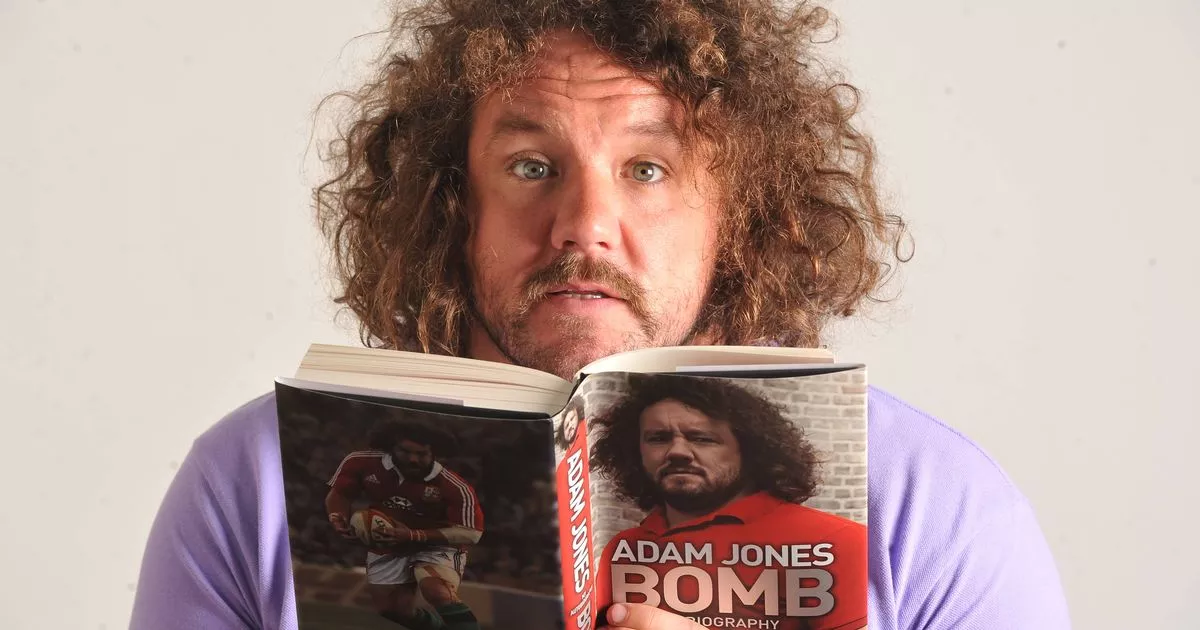As new players release their memoirs, we take a look at some Welsh rugby autobiographies that have made waves before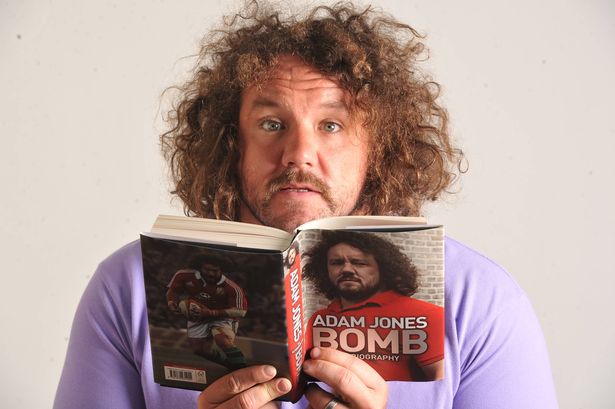 Adam Jones’ book ‘Bomb’ was a revealing read
Adam Jones’ book ‘Bomb’ was a revealing read
It’s that time of year when rugby autobiographies seem to be hitting the shelves every week in anticipation for those Christmas purchases.
The likes of George North, Conor Murray, Ben Youngs and Welsh icon David Bishop have all released their memoirs, shedding light on their careers and revealing the truth about stories that dominated headlines or were never told. Murray undoubtedly raised eyebrows with his comments on Graham Rowntree’s coaching credentials, while Youngs was less than supportive of Warren Gatland’s methods.
They follow a long line of rugby stars who have caused a stir with their stark honesty and revealing tales of what really went on behind the scenes.
Here are some of the big stories to have emerged from books gone by.
Adam Jones (Bomb, My Autobiography)
For years, the circumstances surrounding Mike Ruddock’s departure as Wales coach, just 11 months after securing a Six Nations Grand Slam, remained largely unknown. The entire incident had become known as Ruddockgate.
While details had slowly emerged, it was difficult to ascertain the impartiality of the rumours and allegations.
In 2015, Adam Jones, a three-time Grand Slam winner, stepped forward with his account.
In his autobiography, Jones named the senior players who had held ‘clandestine’ meetings with Welsh Rugby Union bosses behind the head coach’s back.
Jones wrote: “Mike’s departure was a huge shock to the rugby public. It wasn’t to me.
“Throughout his entire tenure, there had been a continuous backdrop of sniping.
“Certain senior players who’d bonded with the previous regime constantly questioned Mike’s methods, undermined his authority and made things awkward.”
He went on: “Among the chief detractors were Gareth Thomas, Martyn Williams, Stephen Jones and Brent Cockbain. I’m not saying these guys were especially disruptive or manipulative, but it was clear they were still in thrall to (Steve) Hansen and (Scott) Johnson. I’m pretty sure they liked Mike as a bloke, but they didn’t rate him as a coach.”
Jones also disclosed his anguish over how Wales management handled the conclusion of his international career, being omitted from the autumn Tests in 2014 and ignored for the subsequent Six Nations campaign. He revealed details of correspondence he penned to Warren Gatland but admits in the publication: “I never sent it. In fact, I never finished it. I was sobbing way before I reached the end.”
The prop icon continues to be amongst the most beloved players to have represented Wales.
Warren Gatland (Pride and Passion: My Autobiography)
Warren Gatland led Wales in two separate stints and reflects favourably in his memoir on his working relationship with the individual who appointed him, former WRU chief executive Roger Lewis, characterising him as a shrewd businessman and maintaining he always felt secure in their partnership.
Their association wasn’t without disagreements, though.
We learn that, whilst serving as CEO, Lewis proposed to Gatland that he ought to implement changes and revitalise his coaching team.
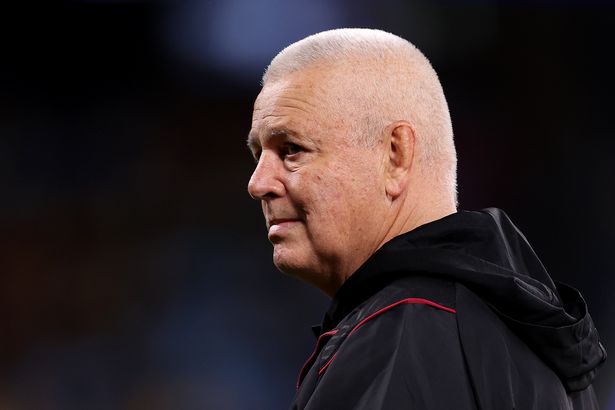 Former Wales head coach Warren Gatland(Image: Getty Images)
Former Wales head coach Warren Gatland(Image: Getty Images)
Gatland reveals he floated the notion of dispensing with Shaun Edwards, who was at that point in 2011 juggling his Wales duties with a position at Wasps, simply to “get him (Lewis) off my back”. Following that, there was a notable victory over Ireland, with Edwards’ defensive strategy playing a crucial role.
Shortly after the match, Lewis held a press conference, publicly announcing that Edwards would be re-signing for Wales. This did not sit well with Gatland.
“I wasn’t best pleased at him saying this in public without any kind of consultation and I told Roger so in pretty blunt terms, within earshot of various staff and players who happened to be hanging around,” he penned.
Lewis’s attempts to take the conversation to a more private setting were met with a firm response.
“Eventually I brought the discussion to a close by saying: ‘Roger, just f*** off and leave me alone’.”
End of conversation.
Message understood?
One would hope so.
Lee Byrne (The Byrne Identity)
The main talking point here was Byrne’s harsh criticism of his former Wales attack coach Rob Howley. It was quite the bombshell.
Byrne went as far as to allege that Howley had humiliated him in front of team-mates and attempted to undermine him. He also claimed he was bullied during Wales camp – an accusation that Howley strongly denied.
Byrne wrote: “It seemed to me that Howley’s constant sniping was part of a grinding-down process – step by step and day by day – to get me out of the team.
“I felt like he was trying to break me down mentally, to make me give in so they could justify dropping me.”
In response, Howley said he was “very surprised” by Byrne’s comments.
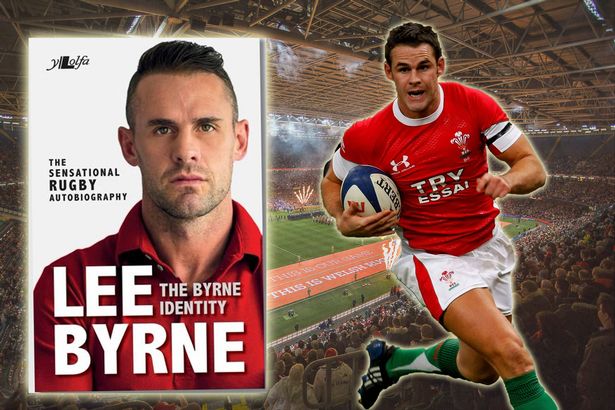 Lee Byrne’s book made headlines
Lee Byrne’s book made headlines
Jonathan Davies (Jonathan, An Autobiography)
Jonathan Davies remains a legend at Neath, the club where he first made his mark. However, his transfer to Llanelli wasn’t well-received by everyone at The Gnoll.
One of the stories he shares in his autobiography is found in a chapter titled ‘Neath and the Noose’.
On the morning of the 1988 Schweppes Cup final between Davies’s Llanelli team and Neath, the fly-half received a card in the post.
“I saw the postmark and thought how nice it was that someone from Neath should send me a card,” Davies remembered.
“Then I opened it and saw my photograph on the front, with a noose drawn around my neck and the letters RIP written underneath.
“Inside there was no message, just the signatures of the entire Neath team. Perhaps it was a joke, but jokes don’t make your stomach turn and your skin shiver …. It was sickening and made me lose a lot of respect for certain members of the Neath club.”
Despite this, any bad blood did eventually subside, with Davies being inducted into the Neath RFC Hall of Fame in 2019.
Gavin Henson (My Grand Slam Year)
Martyn Williams is recognised as one of the most pleasant characters in rugby.
However, the former openside flanker had a heated confrontation with Gavin Henson during a passionate regional clash between Cardiff Blues and the Ospreys.
In his autobiography, My Grand Slam Year, Henson recalled the incident in vivid detail.
“All of a sudden Martyn came flying in on top of me and started throwing punches,” Henson wrote.
“He was screaming too. ‘You don’t like it in the face do you, pretty boy! You can’t handle it.'”.
“I managed to grab him and turn him onto his back and then some other players came in to break us apart.
“‘What’s your problem?’ I said to him but his eyes had glazed over.”
Brilliant times.
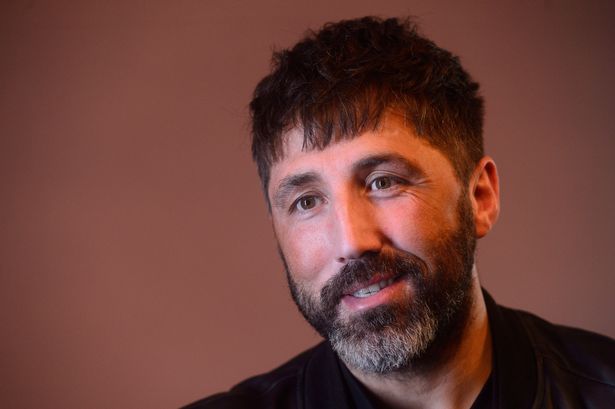 Former Wales and British Lions centre Gavin Henson(Image: Mark Lewis)
Former Wales and British Lions centre Gavin Henson(Image: Mark Lewis)
Williams evidently didn’t spend every subsequent day brooding over the incident, though. When questioned about it years later, he remarked: “I vaguely remember it. Ryan Powell had make a break down the blindside and Gav had put in a big tackle on him – just smashed him.
“I was going to clean Gav out and it just happened so quickly.
“I didn’t really remember it until I saw it in his book after!”.
Several other Wales players received personal criticism in the publication, released in 2005, which generated such controversy that Henson ultimately apologised to his unimpressed international colleagues during a reconciliation meeting.
Lynn Howells (Despite the Knockbacks)
Born in Maerdy and with a playing career that saw him turn out for Tylorstown and Penygraig, plus a brief spell at Pontypridd, Lynn Howells was once the very essence of Valleys rugby.
He also managed Pontypridd.
So he wasn’t particularly thrilled about the decision to wind up Celtic Warriors.
He opens his book, Despite the Knockbacks, with a chapter called ‘They Killed Valleys Rugby’.
He begins with: “The b*****ds. Those were my thoughts as I slumped down in my chair at our taining complex at Pencoed after I realised what had happened. Eating, sleeping, walking the hills, out in the garden, drinking a pint, on my own, with friends or with my wife, I could think of nothing else that summer of 2004.”
And they reckon the finest opening paragraph to a book came from Charles Dickens with his “It was the best of times, it was the worst of times” line in Tale of Two Cities.
Regardless, Lynn’s shocking opening salvo gives you a flavour of what’s to follow.
The Welsh Rugby Union had brought in David Moffett, a catalyst for transformation, to address the Welsh game’s countless issues at the time, but the restructuring of the regional game at the Warriors’ cost 17 years ago left Howells furious with the union’s then chief executive. He says of the union’s then chief executive: “The man I will never forgive for the part he played in my life is David Moffett.”
Howells was also deeply troubled by the ‘firesale’ of Warriors players to other Welsh professional teams.
“One by one they were told which regions wanted them, or the knife was stuck in and they were told no-one wanted them. It was, he says, “brutal and savage,” with some players left devastated.”
This is a powerful account from a man who is widely respected within Welsh rugby.
Paul Thorburn (Kicked Into Touch)
Representing Wales at rugby constitutes an accolade that few attain.
Merely 1,171 players have donned the iconic red jersey at senior international level, reports Wales Online.
Across more than 140 years.
Even fewer individuals have led the national side as captain.
Therefore, a skipper choosing to relinquish the position by withdrawing from Test rugby represents an exceptional occurrence.
This scenario unfolded when Paul Thorburn stepped away from international rugby following the upheaval of Wales’ tour of Australia in 1991.
He had grown disenchanted with particular players’ conduct during the most turbulent of expeditions and what he perceived as hostility towards coach Ron Waldron.
Within his memoir, he reproduced the correspondence he sent to then Welsh Rugby Union secretary Denis Evans upon his return to Wales.
“Dear Denis,” Thorburn penned, “It is with regret that I write to inform you that I have decided that I no longer with to be considered for Wales.
“I…have felt for a number of years that there were problems relating to players’ attitudes, especially off the field. The remarks certain players made about Ron and general coaching were widespread, yet not one player commented on the lack of effort in training especially prior to the tour.”
The former player referred to the ‘bitter and twisted brigade’ who had been quick to criticise. “The only solace for some of the players was to be found in late-night pizzas, hardly in line with the dietary schedules given to us before each international season,” he added.
Wales suffered a crushing 63-6 defeat in the Test, with tensions escalating further when some players clashed at the post-match function. “We were boys in a man’s land, but we had acted like tots,” Thorburn concluded.

